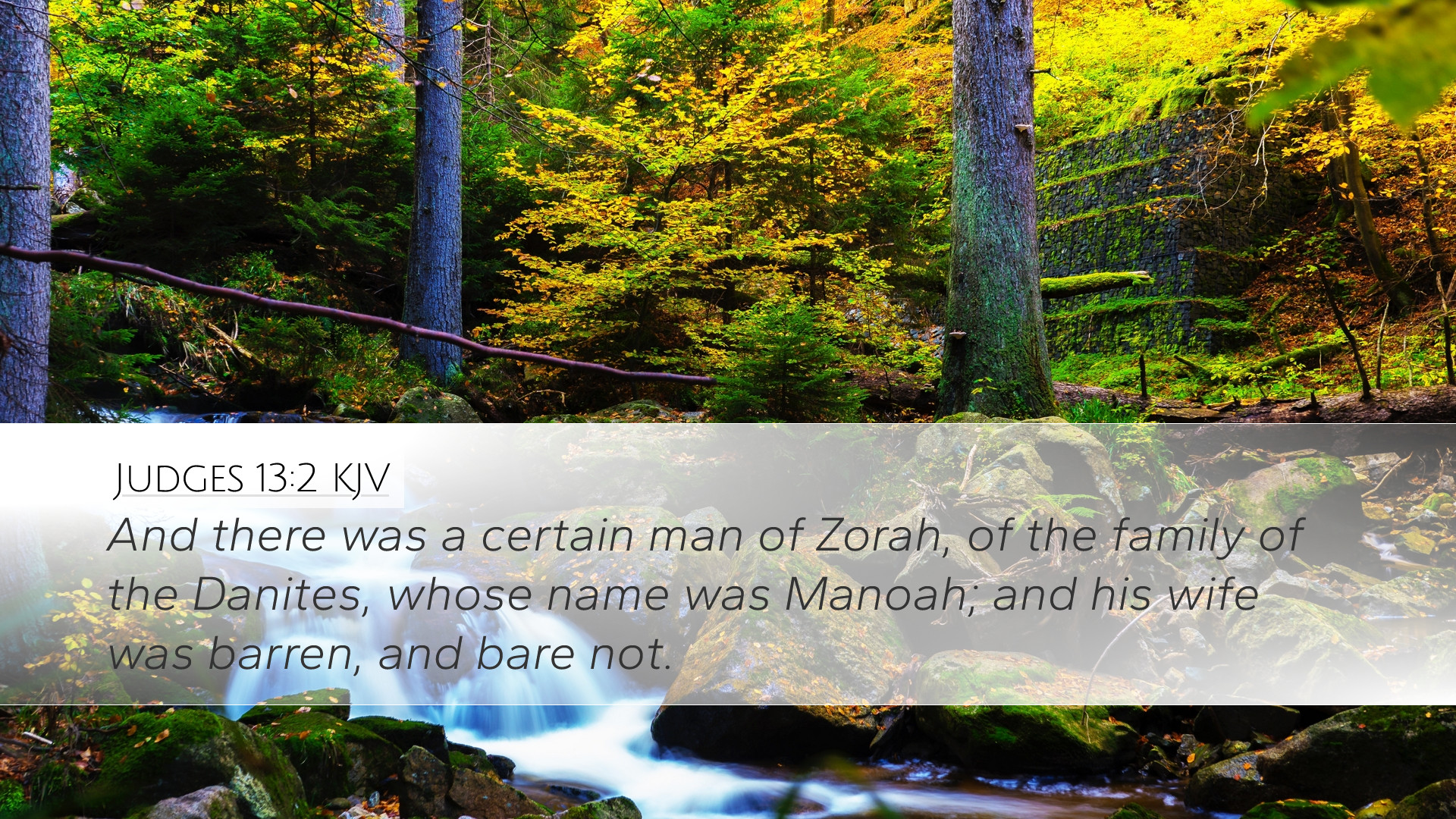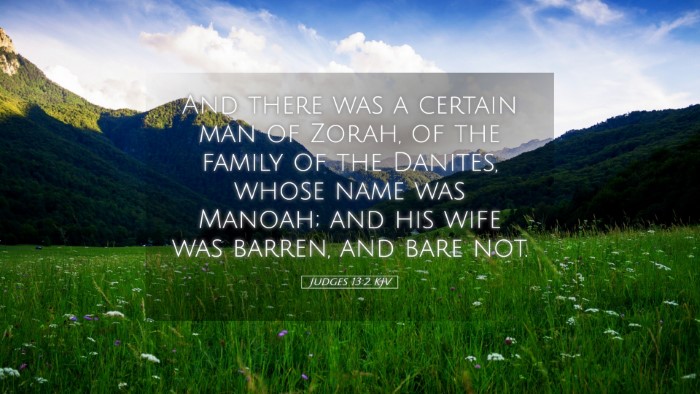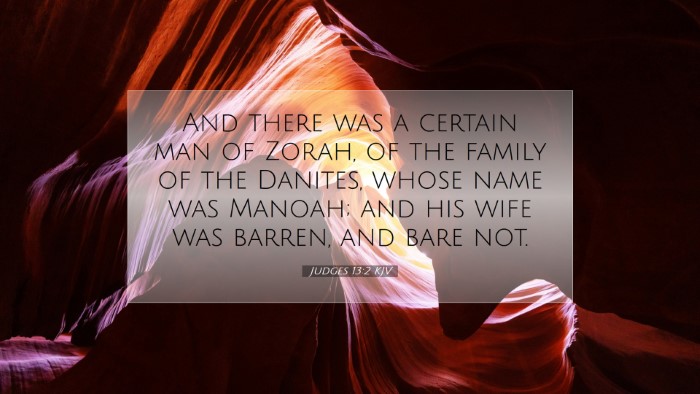Commentary on Judges 13:2
Judges 13:2 (KJV): "And there was a certain man of Zorah, of the family of the Danites, whose name was Manoah; and his wife was barren, and bare not."
Introduction
The verse under consideration is foundational for understanding the birth of Samson, a pivotal figure in the history of Israel. This commentary draws from the insights of public domain commentators such as Matthew Henry, Albert Barnes, and Adam Clarke, offering a comprehensive exploration of the theological and practical implications found within this text.
The Context of Manoah and His Wife
Manoah's Identity: The text introduces Manoah, a man of Zorah, within the family of the Danites. This information is not merely geographical; it holds significance in understanding his heritage and the expectations of his lineage in the context of Israel’s history.
Barrenness: The mention of his wife’s barrenness serves as a crucial narrative element, echoing biblical themes of divine intervention. Albert Barnes notes that barrenness often symbolizes a state of hopelessness, which stands in stark contrast to God's redemptive plan. In the biblical tradition, several notable births, including those of Isaac, Hannah's Samuel, and John the Baptist, are prefaced by the mothers' initial inability to conceive.
Theological Implications
- Divine Selection: Henry emphasizes the significance of God’s choice to work through the barren, suggesting that human weakness often becomes the canvas for divine power. The birth of Samson is a precursor for demonstrating how God can bring strength from weakness.
- Foreshadowing of Redemption: The occurrence of a child born to barren parents, as Clarke points out, is a foreshadowing of the overarching theme of redemption that runs throughout Scripture. This act of divine grace not only provides hope for Manoah and his wife but also serves as a metaphor for God’s promise to Israel.
- Manoah's Lineage: The Danites were one of the tribes of Israel, and this lineage is essential. Some scholars suggest that Manoah's heritage may indicate the nature of the deliverance that Samson would provide, as the Danites historically faced oppression from the Philistines.
Holy Spirit’s Role and Divine Intervention
God’s divine purpose in raising up a deliverer is pronounced through the barrenness of Manoah’s wife. Henry conveys the idea that God often uses conditions that appear futile to manifest His glory, thus showing the work of the Holy Spirit in preparing the way for Samson’s extraordinary role.
The Feminine Divine Influence
The presence and experience of Manoah's wife cannot be overlooked. Her portrayal highlights the active role of women in God’s redemptive plan. As noted by Barnes, she becomes a central character who receives the angelic message about her son's future, indicating that God’s purpose encompasses all members of the family and community.
Application for the Church Today
This passage remains relevant for contemporary believers. It invites pastors, students, and theologians to consider the following applications:
- Hope Amidst Barrenness: Just as Manoah and his wife experienced divine intervention, so too can believers find hope in seemingly impossible situations. This verse encourages the faithful to trust in God’s promises.
- Embracing God’s Calling: Manoah's story prompts questions of calling and purpose. Are we listening for God's direction in our lives, especially when we feel inadequate or unprepared, just as Manoah and his wife might have felt?
- Community and Family Roles: The joint experience of Manoah and his wife illustrates the importance of communal faith. In today’s culture, the family unit remains integral to spiritual development and communal bonding.
Conclusion
Judges 13:2 serves as a profound reminder of God’s ability to bring forth strength from weakness, hope from despair, and purpose from barrenness. Through the story of Manoah and his wife, we see a glimpse of God's redemptive work that ultimately culminates in the life of Samson, a figure fraught with complexities and divine missions. Believers are encouraged to embrace their narratives alongside Manoah’s—trusting in divine providence, seeking purpose, and participating actively in God's plans.


